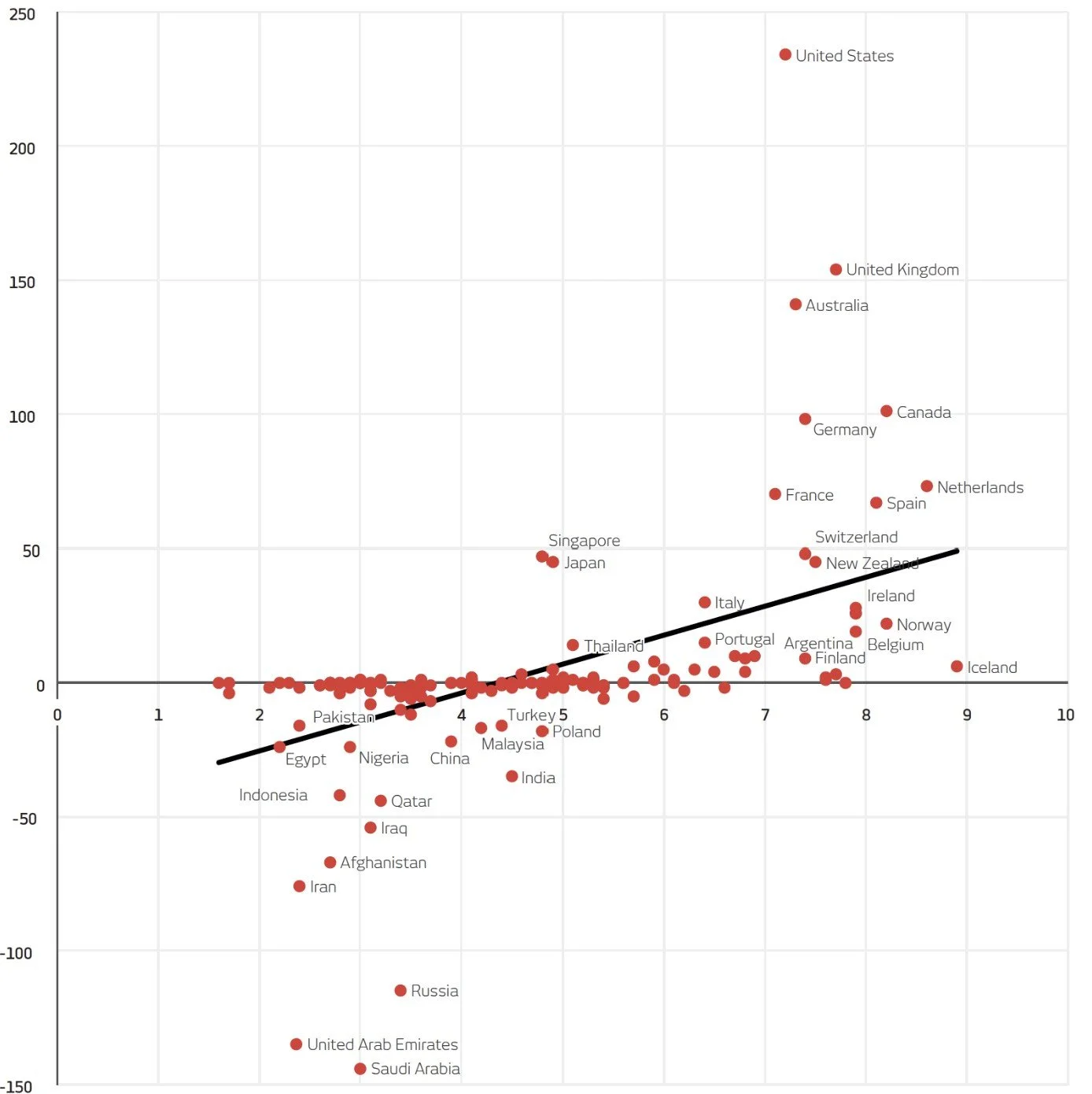Working Globally: Why LGBT+ Inclusion is Key to Competitiveness
Published 2020
Interactive Global City Map - 2025 Edition
Figure 1: Interactive Global City Map - 2025 Edition. Use Ctrl + scroll (or pinch to zoom) to zoom in and out of the map. Click a city bubble for more information.
First-of-its-kind report studies the experiences of
LGBT+ people working abroad
This report looks at why LGBT+ inclusion is an important component of companies’ ability to operate globally today and in the future. The report is a collaboration between Open For Business, Deloitte and Herbert Smith Freehills. It uses data collected by Deloitte, in partnership with Herbert Smith Freehills, to greater understand the experiences of LGBT+ people when working globally, and concludes that LGBT+ inclusion can positively impact the competitiveness of global companies, and the countries in which they are based.
Key Findings:
LGBT+ laws and culture are the two most important factors influencing the decision of LGBT+ people (and people with LGBT+ dependants) to undertake international business travel and assignments – ahead even of healthcare and insurance.
Respondents who had been offered an international assignment were asked whether certain factors pertaining to the host country would make them reject an international assignment now or in the future; the following three factors came out top of the list:
1. Laws related to LGBT+ people (69% of respondents)
2. Culture related to LGBT+ people (62% of respondents)
3. Misalignment with career aspirations (49% of respondents).
Page 5 of Swiss Market Leaders: The Investment Case for LGBTQ+ Inclusion Transparency Report
Assessing the desirability of different countries:
Countries that have higher levels of social and legal LGBT+ acceptance are more likely to attract LGBT+ people working on international assignments and business trips. By comparison, countries that have lower levels of social and legal LGBT+ acceptance are less likely to attract LGBT+ people.
The relationship between the desirability of different countries and their level of human rights protections for LGBT+ people reveals a statistically significant positive relationship between the two variables. Specifically, a six-point increase in the F&M Global Barometers combined score leads to a 10% increase in the number of respondents who are willing to relocate to that country for a work assignment.
Chart 6: Human rights protections for LGBT+ people (x axis) vs. the net number of respondents (y axis)
Assessing the desirability of different countries:
Countries that have higher levels of social and legal LGBT+ acceptance are more likely to attract LGBT+ people working on international assignments and business trips. By comparison, countries that have lower levels of social and legal LGBT+ acceptance are less likely to attract LGBT+ people.
The relationship between the desirability of different countries and their level of human rights protections for LGBT+ people reveals a statistically significant positive relationship between the two variables. Specifically, a six-point increase in the F&M Global Barometers combined score leads to a 10% increase in the number of respondents who are willing to relocate to that country for a work assignment.
Chart 11: information provided before assignment began





